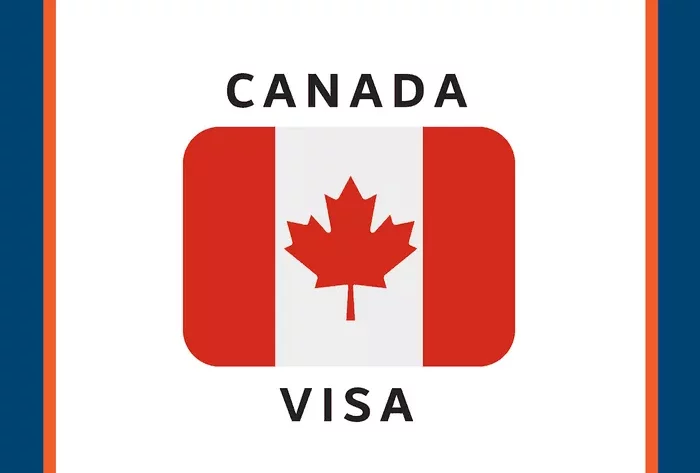Canada, known for its welcoming immigration policies and diverse population, offers various avenues for individuals to visit, live, work, and reunite with their families. Among these pathways, the Super Visa stands out as a unique opportunity for parents and grandparents of Canadian citizens and permanent residents to spend extended periods with their loved ones. This article aims to provide a comprehensive understanding of what the Super Visa in Canada entails, its eligibility criteria, application process, benefits, and considerations for prospective applicants.
Understanding the Super Visa: An Overview
The Super Visa program was introduced by the Canadian government in December 2011 as an alternative to the traditional visitor visa for parents and grandparents of Canadian citizens or permanent residents. Unlike a regular visitor visa, which typically allows stays of up to six months, the Super Visa grants eligible individuals the ability to visit Canada for up to two years per visit, with the visa valid for a period of up to ten years.
Eligibility Criteria for the Super Visa
To qualify for a Super Visa, applicants must meet specific eligibility requirements set forth by Immigration, Refugees and Citizenship Canada (IRCC). Key criteria include:
1. Relationship:
The applicant must be the parent or grandparent of a Canadian citizen or permanent resident.
2. Financial Support:
The sponsor (the Canadian citizen or permanent resident inviting the parent or grandparent) must meet minimum income requirements to demonstrate their ability to financially support the visitor during their stay in Canada.
3. Insurance:
Applicants must provide proof of private medical insurance coverage valid for a minimum of one year from a Canadian insurance company, with coverage for health care, hospitalization, and repatriation.
4. Health and Character Requirements:
Applicants must undergo a medical examination and obtain a police clearance certificate to demonstrate their good health and character.
5. Intent to Return:
Applicants must demonstrate their intent to return to their home country at the end of their authorized stay in Canada.
Application Process
The application process for a Super Visa involves several steps:
1. Complete Application Package:
Applicants must complete the appropriate application forms, including the Application for a Temporary Resident Visa (IMM 5257) and the Family Information Form (IMM 5645), and gather supporting documents.
2. Submit Application:
The completed application package, along with the required fees and supporting documents, must be submitted to the appropriate visa office or visa application center (VAC) responsible for processing applications from the applicant’s country of residence.
3. Biometrics and Medical Examination:
Depending on the applicant’s country of residence, they may be required to provide biometrics (fingerprints and a photograph) at a local VAC and undergo a medical examination by an approved panel physician.
4. Wait for Processing:
After submitting the application, applicants must wait for it to be processed by IRCC. Processing times may vary depending on the volume of applications and the applicant’s country of residence.
5. Receive Decision:
Once the application is processed, applicants will receive a decision on their Super Visa application. If approved, they will receive a letter of introduction confirming their eligibility for the Super Visa.
6. Enter Canada:
Upon receiving the letter of introduction, applicants can travel to Canada and present the letter to a border services officer at the port of entry, where a Super Visa will be issued for a specified duration.
Benefits of the Super Visa
The Super Visa offers several benefits for eligible parents and grandparents wishing to visit their loved ones in Canada:
1. Extended Stay:
Unlike a regular visitor visa, which allows stays of up to six months, the Super Visa permits eligible individuals to remain in Canada for up to two years per visit, providing ample time to spend with family members.
2. Multiple Entries:
The Super Visa is a multi-entry visa, allowing holders to leave and re-enter Canada multiple times during the validity period of the visa, which can be up to ten years.
3. Family Reunification:
The Super Visa facilitates family reunification by allowing eligible parents and grandparents to visit their Canadian relatives for extended periods without the need for frequent visa renewals.
4. Access to Healthcare:
Super Visa holders are required to obtain private medical insurance, ensuring they have access to healthcare services during their stay in Canada.
5. Flexibility:
The Super Visa provides flexibility for eligible individuals to travel to Canada at their convenience and spend extended periods with their family members, fostering stronger familial bonds and relationships.
Considerations for Prospective Applicants
While the Super Visa offers numerous benefits, prospective applicants should consider the following factors before applying:
1. Financial Obligations:
Sponsors must meet minimum income requirements to demonstrate their ability to financially support the visitor during their stay in Canada, including providing proof of private medical insurance coverage.
2. Healthcare Coverage:
Applicants must obtain private medical insurance coverage valid for a minimum of one year from a Canadian insurance company, which can entail additional costs.
3. Intent to Return:
Applicants must demonstrate their intent to return to their home country at the end of their authorized stay in Canada, which may require providing evidence of ties to their home country, such as property ownership or employment.
4. Processing Times:
Processing times for Super Visa applications may vary depending on the volume of applications and the applicant’s country of residence, requiring patience during the application process.
5. Travel Restrictions:
While the Super Visa allows for extended stays in Canada, holders must comply with the conditions of their visa, including adhering to the authorized duration of stay and complying with any travel restrictions or conditions imposed by IRCC.
Conclusion
In conclusion, the Super Visa in Canada serves as a valuable pathway for parents and grandparents of Canadian citizens and permanent residents to spend extended periods with their loved ones. By understanding the eligibility criteria, application process, benefits, and considerations associated with the Super Visa, prospective applicants can make informed decisions and take advantage of this unique opportunity to reunite with family members in Canada.


